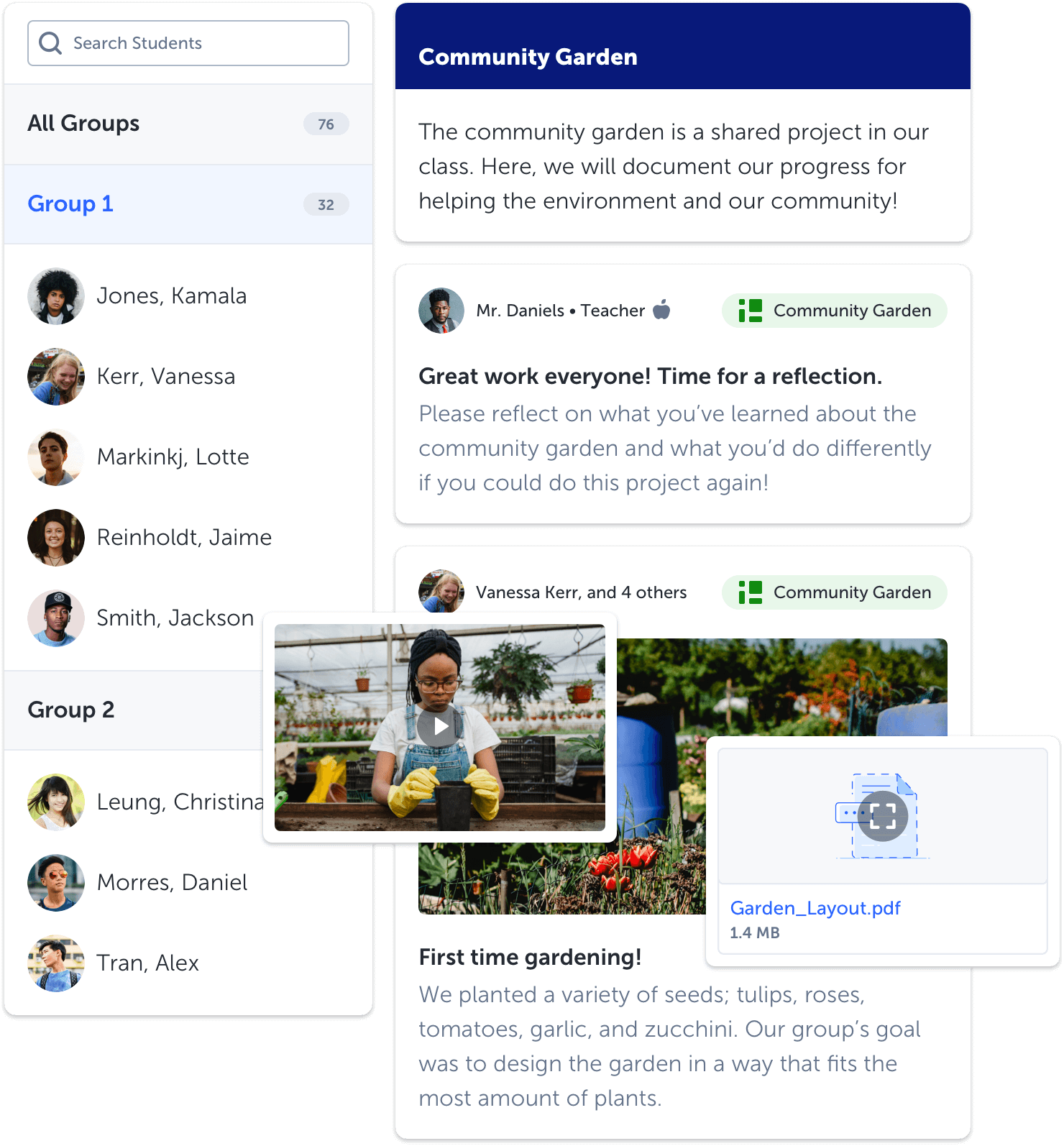In today's fast-paced and interconnected world, technology plays an integral role in shaping various aspects of our lives, including education and career development. As the employment landscape continues to evolve, school districts are challenged with equipping students with the skills and tools needed to succeed in a rapidly changing job market.
One effective strategy is the use of digital portfolios and technology-driven platforms to nurture and showcase student career readiness. This blog explores the power of digital portfolios and technology in cultivating career-ready students, highlighting how these tools empower learners to develop and showcase their competencies, skills, and achievements while positioning themselves as career-ready students.
The Evolution of Portfolios
Traditionally, paper portfolios with tangible collections of work have been used in education to showcase a student’s academic achievements and growth. In the digital age, however, these portfolios have taken on a dynamic and interactive form. Digital portfolios leverage technology to compile a student's diverse accomplishments, spanning academic projects, extracurricular involvement, certifications, and even self-reflections on personal growth.

Digital portfolios transcend the limitations of traditional paper portfolios by following students from year-to-year (to graduation and beyond) and by allowing students to integrate multimedia elements, such as videos, images, and interactive links, to present a comprehensive picture of their learning journey.
Empowering Career Readiness through Digital Portfolios
Showcasing Diverse Competencies
Digital portfolios provide students with a versatile canvas to exhibit the full range of competencies and skills they've acquired throughout their educational journey. From problem-solving to teamwork, critical thinking to effective communication, these portfolios enable students to demonstrate their capabilities. Through interactive presentations, students can include artifacts such as project case studies, where they outline the challenge they encountered, the strategies they employed to address it, and the outcomes achieved. Additionally, students can demonstrate their effective communication by incorporating video recordings of presentations, debates, or collaborative discussions that highlight their clarity, persuasion, and active listening skills. These artifacts collectively offer a dynamic snapshot of students actively engaging in problem-solving and communication, enabling educators and future employers to witness their competencies firsthand. This representation not only resonates with potential future employers, but also gives students a tool for self-assessment and improvement.
Reflective Learning and Growth
One of the unique strengths of digital portfolio tools like SpacesEDU is their capacity to foster reflective learning and 21st-century skills. Students can document their experiences, track their progress, and reflect on their growth over time, fostering self-directed learners. This self-assessment process encourages metacognition – the ability to understand and control one's own learning – an essential skill for career readiness. By reviewing their accomplishments and experiences, students identify areas for growth, refine their goals, and develop a clear vision for their professional journey.
Connecting Academics to Real-World Applications
Digital portfolios bridge the gap between classroom learning and real-world applications. Students can curate evidence of how their academic accomplishments translate into practical skills and competencies. For instance, a computer science student could showcase coding projects, while an aspiring graphic designer might display their portfolio of visual creations. This enhances the student's ability to communicate their readiness to potential employers. Additionally, by having educators implement teaching practices like project-based learning using digital portfolios, students are able to work on solving real-world problems while developing the competencies needed in today’s job market.
The Future of Career Readiness: Digital Portfolios
As the digital landscape continues to shape how we learn, work, and connect, the role of digital portfolios in career readiness is likely to expand. Furthermore, as industries evolve and diversify, digital portfolios adapt seamlessly to capture emerging skills and accomplishments.
The integration of digital portfolios and technology into education has ushered in a new era of career readiness. Digital portfolios not only elevate students' self-awareness, but also position them as proactive, adaptable, and career-ready individuals poised to make meaningful contributions to their chosen fields.

